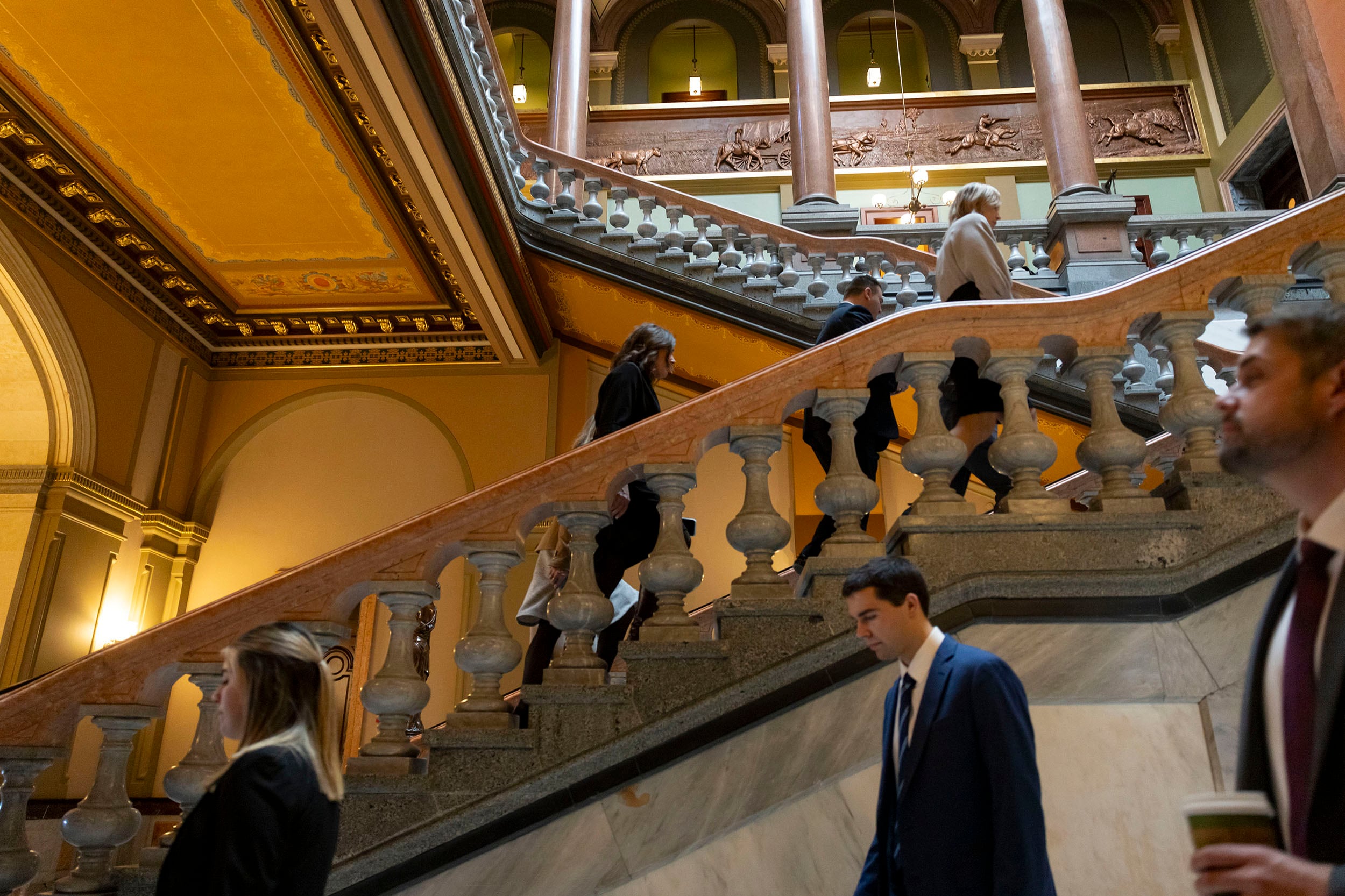Sign up for Chalkbeat Chicago’s free daily newsletter to keep up with the latest news on Chicago Public Schools.
With just over a month left in the spring legislative session, Illinois lawmakers are advancing a number of education-related bills, including ones that would restrict the use of cellphones in classrooms, no longer require student test scores to be a part of teacher evaluations, and protect federal rights for students with disabilities in the mediation process with districts.
Other proposals, such as new regulations for homeschooling and a task force related to artificial intelligence, appear to be stalled.
In addition, state lawmakers are expected to negotiate and approve a budget for the fiscal year 2026, which starts on July 1. According to a spokesperson from Gov. J.B. Pritzker’s office, a budget bill has yet to appear in the legislature.
The legislative session is scheduled to end on May 31.
Here are some education bills we’re continuing to follow.
Bills moving quickly through the legislature
Limiting the use of cellphones in schools: During Pritzker’s State of the State address in February, he said cellphones in classrooms contribute to cyberbullying and can be a distraction from learning. Senate bill 2427 would require Illinois school boards to create a plan around the use of cellphones by the 2026-27 school year. Plans must lay out how to prevent students from using phones during class time, create guidance for accessible storage, and allow some students to keep their phones in the case of medical reasons or required in an Individualized Education Program or Section 504 accommodations. Currently, the bill is in the House’s education policy committee.
Limiting school districts from asking families of students with disabilities to waive their rights: When disputes arise regarding a child’s Individualized Education Programs, Illinois school districts will often ask parents to sign waivers during mediation. For example, a parent could waive their child’s right to transportation in exchange for a placement at a private therapeutic day school. Recently, special education advocates who support parents during mediations with districts say they have seen districts slip in language requiring parents to waive their right to bring complaints against a school district for 10 years in exchange for additional support. To fix this issue, House Bill 2337 would require school districts to use waivers that are limited to the child involved in the mediation process, only related to claims raised in the complaint that initiated the process, and limited to a reasonable amount of time. The bill is currently in the Senate.
Unlinking teacher evaluations and student test scores: Under the Obama administration, states were incentivized to use student test scores in teacher performance evaluations. More than a decade later, many states and lawmakers have changed their minds. In Illinois, Senate Bill 28 would undo a requirement passed in 2010 and now allow school districts to decide whether students’ test scores should be a part of teacher evaluations. The bill passed an education committee in the House on Wednesday.
Ensuring teacher professional development matches literacy standards: The Illinois State Board of Education created the state’s comprehensive literacy plan in 2024 after education advocates pushed for legislation to help change how reading is taught in schools. Now, lawmakers are considering House Bill 1368, which would require companies that provide professional development to teachers related to literacy be aligned with the state’s literacy plan. It’s currently in the Senate’s education committee.
Ensuring children in the NICU receive Early Intervention support:The Illinois Early Intervention program, a statewide initiative that ensures children between birth and 3 are given therapy to help with disabilities, has been plagued by funding issues, staffing shortages, and service delays. However, lawmakers are looking at a bill, House Bill 3772, that would allow parents who have a child in a hospital’s Neonatal Intensive Care Unit, or NICU, to receive information and referrals to the state’s program before being released. The bill is sitting in the Senate’s child welfare committee.
The future is uncertain for these bills
Requiring parental notification for homeschooled children: In response to a Capitol News Illinois and ProPublica investigation of homeschooling in Illinois in 2024, lawmakers filed House Bill 2827. It would require parents who plan to homeschool to notify their local school districts or regional office of education before Sept. 1. Even though the Illinois State Board of Education supported the bill, there was a lot of pushback from parents and other local organizations. The bill has stalled in the House.
Creating a statewide AI taskforce: Teachers are asking the state to create guidance around the use of artificial intelligence in the classroom. House Bill 2503 and Senate Bill 1556 would have required the Illinois State Board of Education to create an advisory board to work on guidelines around the use of AI and other emerging technology, require local school districts to include how schools are using AI in an annual report, and include information about AI in their internet safety curriculum. Neither bill has moved.
Pushing back high school start times: Illinois high school students testified in front of the House’s Education Policy committee in March about pushing back start times to 8:45 a.m. and the positive impacts it could have on students’ education. The bill they were advocating for, House Bill 2951, has not moved in the House since their testimony.
What we’re watching for in the 2026 budget
Looming over lawmakers’ as they piece together next year’s budget is the threat of losing federal funding under the Trump administration.
The U.S. Department of Education recently threatened to cut funding to schools if school education leaders do not certify within 10 days that K-12 schools are not participating in diversity, equity, and inclusion practices it deems illegal. However, federal judges in two lawsuits issued injunctions on Thursday that prevent the Trump administration from withholding federal funds from states and school districts that employ National Education Association members and temporarily block the Trump administration from enforcing new interpretations of civil rights law.
Early childhood education is under threat as well. The Trump administration is reportedly considering a budget proposal that would eliminate Head Start, according to a report from USA Today. That news came after the U.S. Department of Health and Human Services closed a regional office based in Chicago that supports child care providers around the Midwest. In January, when Trump decided to pause all federal grants, child care providers were unable to access funding for their day-to-day operations.
In February, Pritzker proposed an additional $350 million for K-12 schools, a $10 million increase for Early Intervention services for young children between birth and three years old, and an additional $85 million for the state’s Child Care Assistance Program, a program to help low-income families access child care. It’s unclear what the state will be able to do if federal funding is frozen or disappears.
Samantha Smylie is the state education reporter for Chalkbeat Chicago covering school districts across the state, legislation, special education and the state board of education. Contact Samantha at ssmylie@chalkbeat.org.






